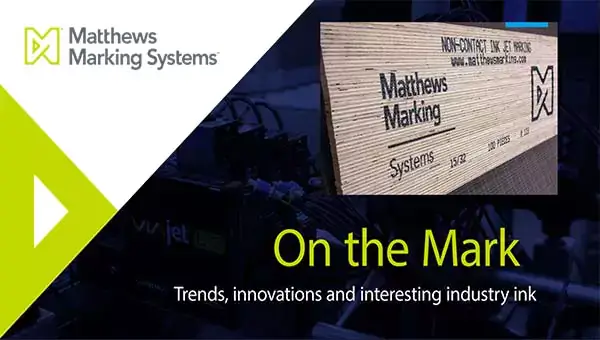Nestlé refillable vending machines, food and beverage industry evolutions, modern wood marking systems

Catching up on interesting news and innovations in production, packaging and more
Why information sharing is critical for food companies to combat cyber attacks
Cybersecurity bad actors have different motives, from money and intellectual property to nation/state disruption. Although historically uncommon in the sector, the food and agriculture industry has recently faced ransomware and other cyber security threats, resulting in lost revenue and sometimes even facility closures.
To fight back, several food and agriculture brands are joining forces and sharing information with each other to combat the attacks. They’ve revived the 2023 Food and Ag-ISAC to curate threat intelligence, identify attacks and incidents, and deploy effective mitigation to protect their companies and the food and agriculture sector.
If one of the member companies has a cyber security incident, the organization members will handle incident response through the industry’s community of analysts, secure checks, ransomware trackers, and communications protocols.
Source: profoodworld.com.
Robotic palletizers, depalletizers enhance worker safety, increase efficiency
As the beverage industry evolves and recovers from the pandemic, brands have been looking for ways to increase ROI and optimize operations. One of the solutions that CPGs have embraced is advanced palletizing operations. Depalletizing is one of the toughest jobs in the warehouse for humans, but robotic palletizers and depalletizers have helped alleviate human-prone injury and redundant movement while increasing efficiencies.
Robots can process single and mixed SKU pallets without human supervision – even when handling different case sizes through a production run. When adding new automation, experts agree that those systems must be able to integrate seamlessly into existing processes. And with the increase in e-commerce and omnichannel shopping, production lines and warehouse operations are only increasing, propelling the automation of palletizing and depalletizing.
Source: bevindustry.com.
Nestlé refillable vending machines, Leaf Shave oil in reusable dropper, Alnatura products in returnable jars
As consumers demand more sustainable solutions, brands of all sizes are exploring ways to reduce single-use packaging and increase sustainable packaging, including refillable and reusable packaging. Although startups and smaller brands tend to drive these initiatives, multi-national brands are testing the waters with small-scale tests, mostly in the areas of dry food, household, health, and beauty.
A few examples are Nestle’s refillable vending machines in Indonesia that can digitally provide product information and shelf life via a QR code; Leaf Shave, a supplier of plastic-free razors which produced its own shave oil with reusable droppers; and Altnatura organic supermarkets in Germany, which offer many products -– such as nut butters, fruit purees, and more -– in returnable deposit jars. The grocer works with Circujar to develop universally usable reusable jars.
Source: packworld.com.
Updating your wood marking systems can reduce cost
With all the wood, dust, glue, and extreme hot and cold temperatures in engineered wood facilities, it’s no wonder that printing on engineered wood comes with its own set of challenges. Smeared, illegible marks can pose major problems for manufacturers, including compliance, efficiency, inventory management, tracking, and traceability.
Modern marking technologies offer many options to work with a variety of systems depending on needs – such as drop-on-demand (DOD) valvejet, thermal inkjet (TIJ) or piezo ink jet (PIJ) printing technologies – providing clear marks with minimal maintenance. Rather than losing money and product due to defective or blurred marking, modern engineered wood facilities are opting for clear, durable marking to help reduce costs and improve efficiency and traceability -– all critical strategies that have a direct impact on a company’s bottom line.
You might say that modern marking technology is more than just a beauty mark for manufacturers.
Source: engineeredwood.org.
Want to make your mark?
What captured your attention in the news recently?
We want to share news that is important to our readers. Submit an industry news article to [email protected] that you found thought-provoking, and we’ll consider adding it to an upcoming issue of On the Mark!
